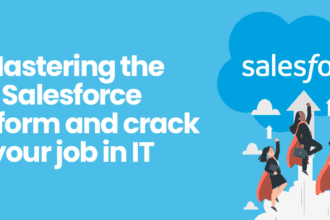
Technologies like blockchain existed before the current NFT craze. Investors and property owners often use real estate and blockchain in the same phase. Due to cryptocurrencies, blockchains are known to the majority of people. The promise of the blockchain, though, extends well beyond virtual currency.
The real estate sector is one of the functions of blockchain that is enthusiastically scheduled. Blockchain and other real estate technologies will fundamentally alter how we create, acquire, occupy, and trade in commercial real estate in the next few years. Blockchain can drastically change how we purchase and rent homes in the future and utterly revolutionize the real estate industry.
If you want to learn interesting information about Blockchain Real Estate, keep reading this post:-
Potential Blockchain Benefits For Real Estate Platforms Include:-
Since fraud efforts are largely eliminated, buyers and sellers may trust transactions more. The blockchain database’s tamper-proof feature might displace siloed databases and enable any real estate company to spread the collection of data and documents from several stockholders.
Decentralized ledgers are self-sufficient and open the door to a world without paper. Not all expensive errors are brought on by fraud. They often result from human mistakes. Due to the very sensitive information that real estate businesses handle, having just one weak spot may be disastrous. With a decentralized procedure, there is little chance of data loss under typical conditions.
Agents or sellers may enter property information once into the blockchain network rather than manually enter it into many systems. Data entered into the blockchain is unchangeable and permanent. It prevents outside parties from altering or interfering with the data. Additionally, it increases consumers’ access to their information.
Whether you’re a resident, entrepreneur, developer, manager, or property owner, you may profit from it.
There are expressive ramifications for:
- Investors in real estate
- Owners and investors in real estate
- Both occupants and tenants
- Property supervisors
Real estate developers:
Developers can more quickly and effectively obtain the capital required to launch a project when several parties may participate in it. Real estate ethnic diversity is nothing new, but blockchain technology and the Blockchain Real Estate Software Development Company make it easier to do and increase the number of potential investors.
The project’s sponsors won’t have to worry about screening investors or dealing with a mountain of paperwork when asking for money contributions from individuals outside of their network. Blockchain keeps track of all the information, enables the execution of smart contracts, and communicates updates and briefings to all stakeholders.
Blockchain safely and securely maintains all engineering designs, appliance manuals, and architectural documents. It indicates that the information is easily accessible on the blockchain-based system if shareholders, owners, or anyone participating in the project development wants to access those documents. Developers are therefore given more time and money to focus on the actual project’s development since transaction time and costs are significantly reduced.
Real estate owners and investors:
Prospective owners and investors might feel secure when purchasing real estate since blockchain technology almost eliminates the possibility of fabricating or altering data. In other words, consumers may be certain of the value and validity of a property while investing their money in it.
The tokenization of property investment or the transfer of its value into cryptocurrencies also destroys the industry. The entrance point for prospective purchasers or investors is made more convenient through liquidation. As a result, a seller need not pause for a purchaser who can pay the property’s full value before realizing a profit on their investment.
Both renters and residents:
Renters benefit from a better renting and living experience using blockchain, from having guided tours and negotiating agreements with smart contracts to reporting mortgage repayments or making maintenance requests. All parties are informed that the estate listing is real, identities are confirmed, and personally, identifiable information is encrypted thanks to the security provided by blockchain technology.
Moving across the nation, or perhaps the globe has never been simpler, thanks to blockchain. Without leaving Tokyo, you may lease a residence in San Francisco and do business without leaving the country, grateful to blockchain’s removal of all physical boundaries and prevention of privacy and information breaches.
Real estate managers:
Today, property management includes more than merely repainting walls and installing new appliances. Processing paperwork, such as rental contracts or maintenance requests, makes up most of the employment.
But when you utilize a single decentralized, blockchain-based property management system, all that documentation transforms into practically error-proof smart contracts. Rent amount, payment regularity, occupant and asset records, and contractor agreements are all completely visible in a blockchain-based system.
What role does blockchain play in the real estate industry?

The utilization of blockchain technology in real estate has various advantages. Blockchain technology provides a quick and safe means to complete complicated real estate transactions, from title exchanges to pricing discussions.
Think about how apartment tours have changed in recent years. You may arrange a self-guided trip and see an apartment without speaking to a leasing representative. Similarly, blockchain technology offers safe and virtual solutions that digitalize and streamline various property buying stages.
Exciting Ways that blockchain improves the real estate sector include:

1.)Smart contracts based on blockchain:
A self-executing contract is well-recognized as a “smart contract” that specifies the parameters of the deal between the buyer and the seller. The terms are kept on a decentralized blockchain network as lines of code. Blockchain algorithms track the contract’s execution; these transactions are irreversible and transparent.
Contracts that can be digitized on blockchains include offer sheets, trading contracts, letters of intent, and closing papers. The whole transaction procedure may be greatly sped up by signing smart contracts instead of traditional ones. Additionally, it removes the need for face-to-face negotiations with agents, bankers, and attorneys while assuring that the payments are legal and safe.
2.)Facilitating access to real estate investment:
Real estate investment has always been time-consuming and exclusive. You need to include many entities in the procedure of due diligence, whether you’re dealing with a single-family home or a collection of structures. Additionally, you must be financially stable before purchasing real estate.
With blockchain technology, many individuals may jointly own a building by purchasing tokens for that structure. Property has been tokenized in this way, allowing for partial or fractional ownership of the item. Real estate may become a highly liquid commodity thanks to tokenization, which makes it easier for owners to purchase or sell their holdings at a profit. As a result of democratizing and decentralizing the real estate market, this process draws in more prospective buyers and investors.
3.) Services for secure and clear real estate listings:
Most real estate listing services available today are privately owned and do not have a centralized database for cross-referencing. In the past, keeping a record of transactions and documents in the real estate industry was done using a pen and a pencil. What’s more, these services often charge consumers high monthly fees.
However, consolidating those real estate listing services into a single server powered by a decentralized blockchain makes a unified, safe database available to everyone. Customers may utilize decentralized finance (DeFi) services, for instance, to make objective investment or purchase choices. Additionally, since the data has been verified and is kept safely, other parties cannot tamper with it by increasing the price or publishing false information.
On second thought,
The advent of blockchain technology may bring about significant changes. Every problem affecting the real estate industry, including a lack of transparency, a considerable lot of uncertainty, and widespread fraud, may be resolved by blockchain technology. There will be a lot of changes in the overall estate sector shortly, particularly in real estate transactions. We will be able to achieve greater transparency, do away with the intermediary, and save a tonne of money by using blockchain technology.








